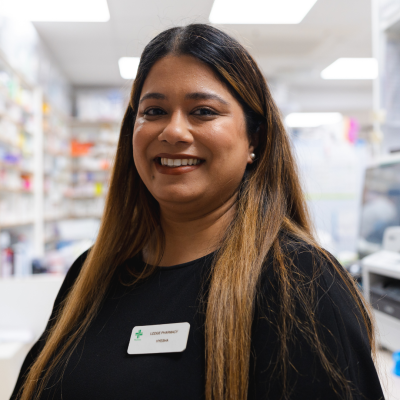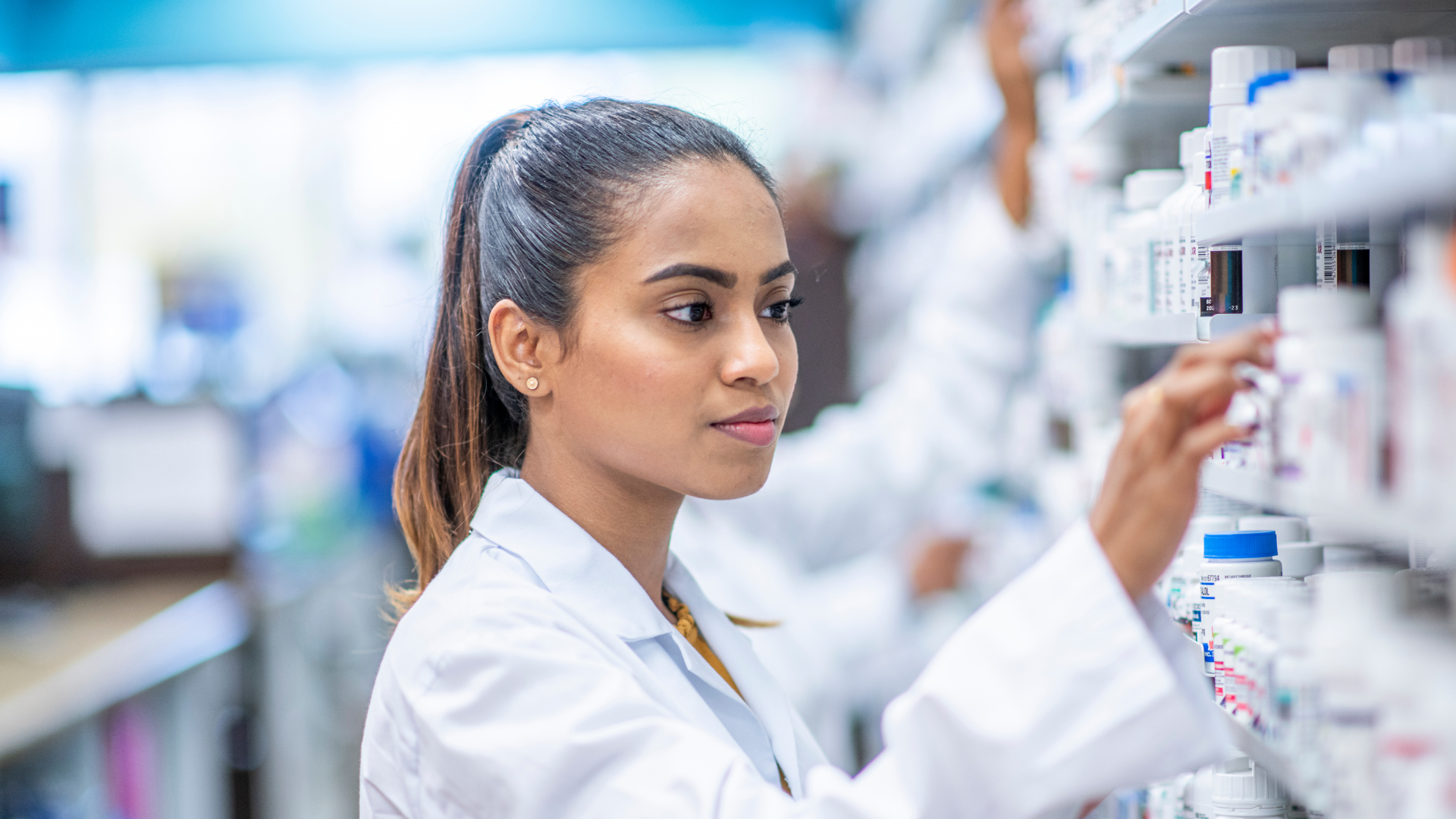Seeing a pharmacist is often the best first step for minor health concerns.
Pharmacists can provide one-to-one, confidential consultations for you and your family. Most pharmacies have a private consultation room where you can discuss issues with pharmacy staff without being overheard, you usually do not need to pre book an appointment for this service.
If symptoms suggest it's something more serious, pharmacists have the right training to make sure you get the help you need. For example, they may advise you to see a member of the GP practice team.

For information and help with NHS prescription charges and exemptions, see the NHS website.
Many pharmacies have late night opening hours and some are open 7 day a week. You can check your local pharmacy opening times on the NHS website.
For opening times across Christmas Day, Boxing Day and New Year's Day, please visit our dedicated page.
Most people will take medicines at some point in their lives. Medicines can be used to prevent you from getting ill, control a condition or cure an illness. To make the most of your medicines, you need to:
- Take them at the right times
- Take them in the right way
- Look out for side effects
- Make sure you always have enough.
To read about the different types of medicine and how they become available, visit the NHS website.
If you are caring for a family member or friend who can’t manage without your support, then helping them with their medicines can be a challenge, particularly if they're taking several different types of medicines.
To help you with this, there are some tips for carers which offers lots of support and also explains you how your community pharmacist can help you with this.
Every year £300million of NHS taxpayers’ money is spent on unused medicines that are thrown away. This is vital money that could be re-invested back into our local NHS for patient care. To play your part in reducing medicines waste, please:
- Check what medicines you have already at home before you re-order more.
- Remember don’t tick it if you don’t need it! There is no need to worry, the item will not disappear from your repeat prescription. It will still be there next time you need to order your medication.
- Having regular discussions with your pharmacist and GP will mean you get the right help with taking your medicines.
- Next time you pick up your prescription from the pharmacy check your prescription bag before you leave. This means that you can return any unwanted medicines to the pharmacist. You cannot do this once you have left the pharmacy.
NHS pharmacy services
Access to COVID-19 treatment
People living in Birmingham and Solihull who test positive for COVID-19 and are at the highest risk of becoming seriously ill, but don’t need admitting to hospital, can be referred for a COVID-19 treatment assessment.
The treatment assessment will be carried out by the local COVID Medicines Delivery Unit (CMDU), which runs seven days a week, from 9am until 5pm.
You can be referred to the CMDU by your GP, hospital specialist or NHS 111 if you meet all of the required criteria, which are listed on the NHS website.
When being assessed for treatment, a healthcare professional will advise which treatment is most suitable for you. Some treatments come as capsules or tablets that you swallow. Others treatments are given to you through a drip in your arm (infusion) in a hospital setting.
If you think you may be eligible for treatment, have tested positive for COVID-19 and are experiencing symptoms you should contact your GP practice or call NHS 111 for advice. You may also contact your hospital specialist if you have one.
COVID-19 tests for people at the highest risk of becoming seriously ill
People who are eligible for COVID-19 treatment are advised to keep a supply of COVID-19 rapid lateral flow tests at home as it is important to start treatment as soon as possible if symptoms start. Certain pharmacies can provide free tests to those who are eligible.
The pharmacy will need to be provided with some details to confirm eligibility - more information can be found here: Visit the NHS website to find a pharmacy that offers free COVID-19 rapid lateral flow tests.
High blood pressure (also called hypertension) can lead to serious problems like heart attacks or strokes. Lifestyle changes and blood pressure medicines can help you stay healthy.
Community pharmacies offer free NHS blood pressure checks to people aged 40 and over, often with no appointment necessary. Visit th NHS website to find a pharmacy that offers free blood pressure checks.
Birmingham and Solihull’s Healthy Hearts scheme aims to help reduce the risk of heart attack and stroke for people at highest risk. More information can be found through the Healthy Hearts website.
You may be able to get the contraceptive pill from a pharmacy if you need to:
- start the contraceptive pill for the first time
- take the contraceptive pill again after a break from using it
If you already have a prescription for the contraceptive pill, you can use the prescription as usual. Or you can get the pill from a pharmacy without a prescription if you prefer.
This is a free and confidential service. The pharmacist will ask about your health and may check your height, weight and blood pressure.
The pharmacist will let you know how to take the pill, and discuss possible side effects. They can refer you to a GP or sexual health clinic if needed.
Visit the NHS website to find a pharnacy offering the contraceptive pill without a prescription.
The flu vaccine helps protect against flu, which can be a serious or life-threatening illness. It's offered on the NHS every year in autumn or early winter to people at higher risk of getting seriously ill from flu.
Community pharmacies have been providing flu vaccinations since September 2015. The accessibility of pharmacies, their extended opening hours, and the option to walk in without an appointment have proved popular with patients seeking vaccinations.
For more information, please visit our flu page.
If you're prescribed a medicine for the first time, to treat a long-term condition you may be able to get extra help and advice about your medicine from your local pharmacist through a free service called the New Medicine Service. To find out more, visit the NHS website.
Visit our Pharmacy First page to learn more about this service.
The Specialist Palliative Care Drugs Supply Service (SPCD) is a local enhanced service. Pharmacies on this list will hold agreed stocks of SPCD drugs and dispense palliative care prescriptions.
Further information
For any pharmacy complaints or concerns:
- Write to: NHS Birmingham and Solihull Integrated Care Board, Patient Experience and Complaints Team, Alpha Tower, 8th Floor, Suffolk Street Queensway, Birmingham, B1 1TT
- Email for complaints and patient enquiries: bsol.patientexperience@nhs.net
- Telephone: 0121 203 3313
Visit our Compliments, Concerns and Complaints page to learn more.
